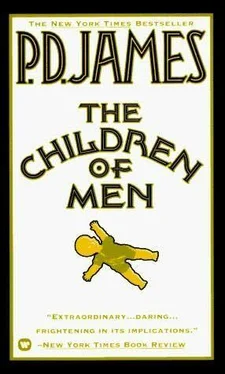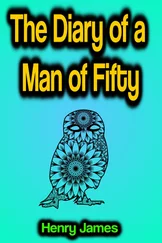He made no further protest, but got up and said: “I’ll be as quick as I can.”
For a few seconds he stood silent outside the hut and listened. He shut his eyes to the autumn hues of the forest, to the shaft of sunlight on bark and grass, so that he could concentrate all his senses into listening. But he heard nothing, not even the sound of a bird. Then, almost leaping forward like a sprinter, he began pounding, past the lake, up the narrow tunnel of green towards the crossroads, leaping over the ruts and potholes, feeling the jar of the hard ridges under his feet, ducking and weaving beneath the low clutching branches. His mind was a tangle of fear and hope. It was madness to leave Julian. If the SSP were close and had captured Miriam there was nothing he could do to help her now. And if they were that close it was only a matter of time before they found Julian and her child. Better to have stayed together and waited, waited until the bright morning lengthened into afternoon and they knew that there was no hope of seeing Miriam again, waited until they heard on the grass the thud of marching feet.
But, desperate for reassurance, he told himself that there were other possibilities. Julian was right. Miriam could have had an accident, fallen, be lying there, wondering how long it was before he came. His mind busied itself with the images of disaster, the door of a pantry slamming fast behind her, a defective well-head which she hadn’t seen, a rotting floorboard. He tried to will himself into belief, to convince himself that an hour was a very little time, that Miriam was busy collecting everything they might need—calculating how much of the precious store she could carry, what could be left until later, forgetting in her foraging how long those sixty minutes would seem to those who waited.
Now he was at the crossroads and could see, through the narrow gap and the thinner bushes of the wide hedge, the sloping field and the roof of the house. He stood for a minute catching his breath, bending to ease the sharp pain in his side, then plunged through the tangle of high nettles, thorns and snapping twigs into the clearer light of the open countryside. There was no sign of Miriam. More slowly now, aware of his vulnerability and of a deepening unease, he made his way across the field and came to the house. It was an old building with an uneven roof of mossy tiles and tall Elizabethan chimneys, probably once a farmhouse. It was separated from the field by a low dry-stone wall. The wilderness which was once the rear garden was bisected by a narrow stream spurting from a culvert higher up the bank over which a simple wooden bridge led to the back door. The windows were small and uncurtained. Everywhere was silent. The house was like a mirage, the longed-for symbol of security, normality and peace which he had only to touch to see vanish. In the silence the ripple of the stream sounded as loud as a torrent.
The back door was of black oak banded with iron. It stood ajar. He pushed it wider and the mellow autumnal sunlight splashed gold over the stone slabs of a passage leading to the front of the house. Again he stood for a second and listened. He heard nothing, not even the ticking of a clock. To his left was an oak door leading, he presumed, into the kitchen. It was unlatched and gently he pushed it open. After the brightness of the day the room was dim and for a moment he could see little until his eyes accustomed themselves to a gloom made more oppressive by the dark oak beams, the small dirt-covered windows. He was aware of a damp coldness, of the hardness of the stone floor and of a tincture on the air, at once horrible and human, like the lingering smell of fear. He felt along the wall for a light switch, hardly expecting, as his hand found it, that there would still be electricity. But the light came on, and then he saw her.
She had been garrotted and the body dumped into a large wicker chair to the right of the fireplace. She lay there sprawled, legs askew, arms flung over the ends of the chair, the head thrown back with the cord bitten so deep into the skin that it was hardly visible. Such was his horror that after the first glance he staggered over to the stone sink under the window and vomited violently but ineffectively. He wanted to go to her, to close her eyes, to touch her hand, to make some gesture. He owed her more than to turn away from the appalling horror of her death and vomit his disgust. But he knew he couldn’t touch her and couldn’t even look again. With his forehead hard against the cold stone, he reached up to the tap and a gush of cold water flowed over his head. He let it flow as if it could wipe away the terror, the pity and the shame. He wanted to throw back his head and howl out his anger. For a few seconds he was helpless, in the thrall of emotions which left him powerless to move. Then he turned off the tap, shook the water from his eyes and took hold of reality. He had to get back to Julian as quickly as possible. He saw on the table the meagre gleanings of Miriam’s search. She had found a large wicker basket and had filled it with three tins, a tin-opener and a bottle of water.
But he couldn’t leave Miriam as she was. This mustn’t be the last vision he had of her. However great the need to get back to Julian and the child, there was a small ceremony he owed to her. Fighting terror and revulsion, he got up and made himself look at her. Then, bending, he loosened the cord from her neck, smoothed the lines of her face and closed her eyes. He felt the need to take her out of this awful place. He lifted her in his arms, carried her out of the house and into the sunlight, then laid her carefully down under a rowan tree. Its leaves, like tongues of flame, cast a glow on the pale brown of her skin as if her veins still pulsed with life. Her face now looked almost peaceful. He crossed her arms on her breast and it seemed to him that the unresponsive flesh could still communicate, was telling him that death was not the worst thing that could happen to a human being, that she had kept faith with her brother, that she had done what she set out to do. She had died but new life had been born. Thinking of the horror and cruelty of her death, he told himself that Julian would no doubt say that there must be forgiveness even for this barbarity. But that was not his creed. Standing for a moment very still and looking down at the body, he swore to himself that Miriam would be avenged. Then he retrieved the wicker basket and, without a backward look, ran from the garden across the bridge and plunged into the forest.
They were close, of course. They were watching him. He knew that. But now, as if the horror had galvanized his brain, he was thinking clearly. What were they waiting for? Why had they let him go? They hardly needed to follow him. It must be obvious that they were very close now to the end of their search. And he had no doubt of two things. The party would be small and Xan would be among them. Miriam’s murderers hadn’t been part of an isolated forward search party with instructions to find the fugitives, leave them unharmed and send back word to the main party. Xan would never risk having a pregnant woman discovered except by himself or by someone he trusted absolutely. There would be no general search for this valuable quarry. And Xan would have learned nothing from Miriam, he was sure of that. What he was expecting to find was not a mother and child but a heavily pregnant woman still with some weeks to go. He wouldn’t want to frighten her, wouldn’t want to precipitate a premature labour. Was that why Miriam had been garrotted, not shot? Even at that distance he didn’t want to risk the sound of gunfire.
But that reasoning was absurd. If Xan wanted to protect Julian, to ensure that she kept calm for the birth which he believed was close, why kill the midwife she trusted and kill her so horribly? He must have known that one of them, perhaps both, would go to seek her. It was only by chance that he, Theo, not Julian, had been faced by that swollen, protruding tongue, those bulging, dead eyes, the full horror of that awful kitchen. Had Xan convinced himself that with the child ready to be born nothing, however shocking, could really hurt it now? Or had he needed to get rid of Miriam urgently, whatever the risk? Why take her prisoner with all the consequent complications when one quick twist of cord could settle the problem forever? And perhaps even the horror was deliberate. Was he proclaiming: “This is what I can do, what I have done. There are now only two of you left who are part of the conspiracy of the Five Fishes, only two who know the truth about the child’s parentage. You are in my power absolutely and forever”?
Читать дальше












